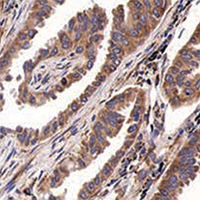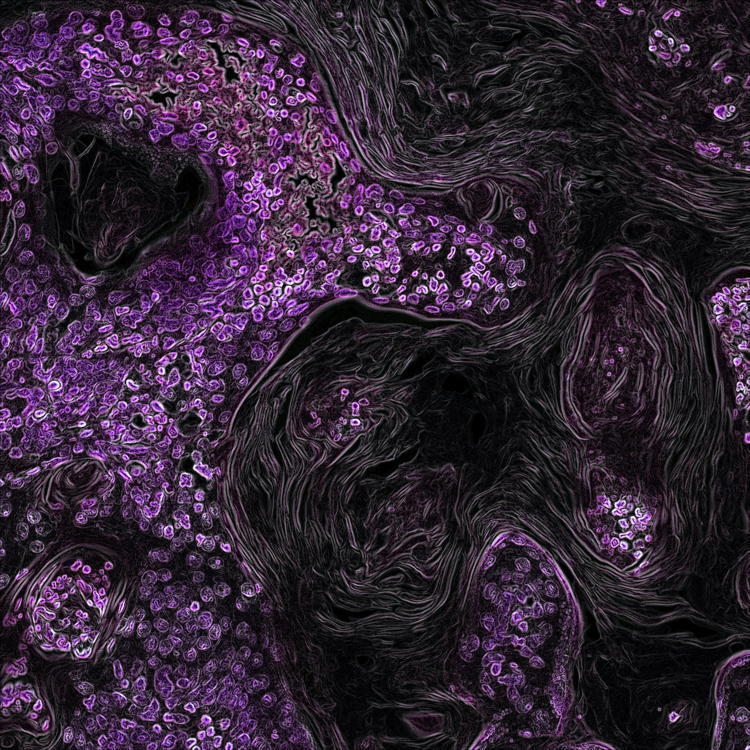MicroRNA-29b-3p promotes 5-fluorouracil resistance via suppressing TRAF5-mediated necroptosis in human colorectal cancer

Submitted: 16 March 2021
Accepted: 21 May 2021
Published: 22 June 2021
Accepted: 21 May 2021
Abstract Views: 1245
PDF: 778
Supplementary: 139
HTML: 15
Supplementary: 139
HTML: 15
Publisher's note
All claims expressed in this article are solely those of the authors and do not necessarily represent those of their affiliated organizations, or those of the publisher, the editors and the reviewers. Any product that may be evaluated in this article or claim that may be made by its manufacturer is not guaranteed or endorsed by the publisher.
All claims expressed in this article are solely those of the authors and do not necessarily represent those of their affiliated organizations, or those of the publisher, the editors and the reviewers. Any product that may be evaluated in this article or claim that may be made by its manufacturer is not guaranteed or endorsed by the publisher.
Similar Articles
- Flavia Carton, The contribution of immunohistochemistry to the development of hydrogels for skin repair and regeneration , European Journal of Histochemistry: Vol. 67 No. 1 (2023)
- A. Sbarbati, D. Accorsi, D. Benati, L. Marchetti, G. Orsini, G. Rigotti, P. Panettiere, Subcutaneous adipose tissue classification , European Journal of Histochemistry: Vol. 54 No. 4 (2010)
- H. Zhang, P. Yu, S. Zhong, T. Ge, S. Peng, Z. Zhou, X. Guo, Gliocyte and synapse analyses in cerebral ganglia of the Chinese mitten crab, Eriocheir sinensis: ultrastructural study , European Journal of Histochemistry: Vol. 60 No. 3 (2016)
- Enrica Cappellozza, Federico Boschi, Maddalena Sguizzato, Elisabetta Esposito, Rita Cortesi, Manuela Malatesta, Laura Calderan, A spectrofluorometric analysis to evaluate transcutaneous biodistribution of fluorescent nanoparticulate gel formulations , European Journal of Histochemistry: Vol. 66 No. 1 (2022)
- Jianbao Yuan, Linfang Li, Yi Fan, Xinyu Xu, Xiaoqiong Huang, Jiayu Shi, Chuanwei Zhang, Lixin Shi, Yuliang Wang, Effects of artificial light with different spectral compositions on refractive development and matrix metalloproteinase 2 and tissue inhibitor of metalloproteinases 2 expression in the sclerae of juvenile guinea pigs , European Journal of Histochemistry: Vol. 68 No. 3 (2024)
- KH Cho, HS Lee, SK Ku, Changes in gastric endocrine cells in Balb/c mice bearing CT-26 carcinoma cells: an immunohistochemical study , European Journal of Histochemistry: Vol. 50 No. 4 (2006)
- S. Battistelli, B. Citterio, B. Baldelli, C. Parlani, M. Malatesta, Histochemical and morphometrical study of mouse intestine epithelium after a long term diet containing genetically modified soybean , European Journal of Histochemistry: Vol. 54 No. 3 (2010)
- Letizia Ferroni, Chiara Gardin, Andrea De Pieri, Maria Sambataro, Elena Seganfreddo, Chiara Goretti, Elisabetta Iacopi, Barbara Zavan, Alberto Piaggesi, Treatment of diabetic foot ulcers with Therapeutic Magnetic Resonance (TMR®) improves the quality of granulation tissue , European Journal of Histochemistry: Vol. 61 No. 3 (2017)
- Marina Boido, Elena De Amicis, Katia Mareschi, Franca Fagioli, Alessandro Vercelli, Organotypic spinal cord cultures: An in vitro 3D model to preliminary screen treatments for spinal muscular atrophy , European Journal of Histochemistry: Vol. 65 No. s1 (2021): Special Collection on Advances in Neuromorphology in Health and Disease
- Guoyue Liu, Cunzhi Yin, Mingjiang Qian, Xuan Xiao, Hang Wu, Fujian Fu, LncRNA gadd7 promotes mitochondrial membrane potential decrease and apoptosis of alveolar type II epithelial cells by positively regulating MFN1 in an in vitro model of hyperoxia-induced acute lung injury , European Journal of Histochemistry: Vol. 67 No. 2 (2023)
<< < 26 27 28 29 30 31 32 33 34 35 > >>
You may also start an advanced similarity search for this article.

 https://doi.org/10.4081/ejh.2021.3247
https://doi.org/10.4081/ejh.2021.3247










